SUMMARY
This is AI generated summarization, which may have errors. For context, always refer to the full article.
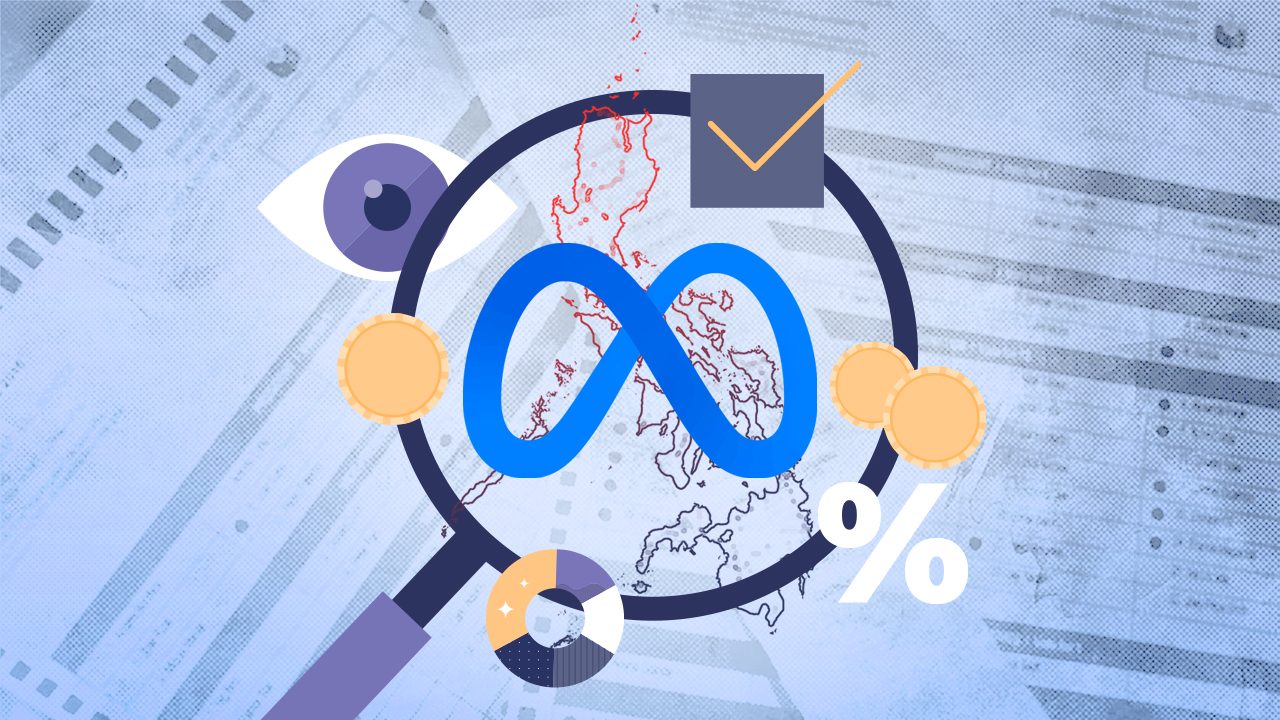
MANILA, Philippines – Meta Platforms, parent company of Facebook, announced on Thursday, April 7, their plans to protect their platforms for the upcoming 2022 Philippine elections.
Facebook remains the most popular social media platform in the Philippines, with 83.85 million users as of early 2022, according to We Are Social.
Meta has dedicated a multidisciplinary team to focus the Philippine elections, and has plans to activate an Elections Operations Center to address concerns on disinformation, cybersecurity, and other related issues in real-time.
Ahead of election day, the tech company is focusing on key areas including disinformation and inauthentic behavior, ad transparency, and information dissemination to protect election integrity.
Combating inauthentic behavior, disinformation
Facebook removed clusters of activity where pages and groups renamed and repurposed themselves ahead of the election. Facebook found non-political pages and groups that suddenly started sharing political content to increase the size of their audience, but also found political pages and groups that started sharing non-political posts after they grew a significant following.
Facebook also removed clusters of activity from other countries including Vietnam, Thailand, and the United States where users posed as local members of Philippine communities for monetization purposes. The company found that spammers from Vietnam used virtual private networks (VPNs) in order to appear that they were based in the Philippines.
These actors posed as supporters of local campaigns or posed as alternative news sources, using names like Philippines Trending News, Duterte Live, Related to Francis Leo Marcos, and Pinas News. Facebook found that these actors aimed to drive users to clickbait, off-platform websites filled with advertisements in an attempt to monetize Filipinos’ attention on the elections.
As for disinformation, Facebook removes content likely to put people at risk for “imminent physical harm” as well as misleading claims on voting processes, such as content intended to suppress voting. Facebook also has artificial intelligence technology trained to detect hateful content in Filipino, which are later reviewed by content moderators for possible removal. The company’s content moderators review content in both Filipino and Cebuano.
However, for all other posts containing disinformation, once rated by third-party fact-checkers, Facebook simply labels such content and significantly reduces the distribution of such posts. Pages or domains that repeatedly share false claims will also have their distribution and ability to monetize or advertise reduced.
Those who have shared content flagged by fact-checkers will be notified that the information is false or misleading. Rappler is among Facebook’s independent third-party fact-checkers in the Philippines. (READ: How we do our fact-check)
Along with Internews, Facebook also previously launched the Philippine Fact-Checker Incubator where participating organizations can help contribute to fact-checking efforts in the country.
Facebook also removed a network of 400 accounts amplifying content on DDoS attacks in the Philippines.
Boosting advertiser transparency
While Meta has decided not to ban political advertising on their platforms like Twitter and TikTok, they increased transparency for advertisers running ads related to politics and even social issues.
For political ads made by or on behalf of a candidate, political figure, or political party, Facebook will indicate who paid for them. The same policies will apply for ads on certain social issues, such as immigration, crime, economy, environmental politics, civil and social rights, and foreign policy.
Its Ad Library also contains details on all active advertisements running across Facebook and Instagram. Users can search for certain advertisers and can access details on page name changes, page merges, and the number of administrators per location.
In January 2022, Facebook also removed certain detailed ad targeting options relating to topics people may perceive as sensitive. These include targeting options related to health, race or ethnicity, political affiliation, religion, or sexual orientation.
The Philippine Center for Investigative Journalism (PCIJ) found that potential candidates for the 2022 elections began advertising on Facebook as early as August 2020, more than a full year before election day.
However, politicians have found ways to evade Facebook’s rules on political ads and to promote themselves on the platform without formal advertising. Earlier this year, PCIJ also found that presidential bet and dictator’s son Ferdinand “Bongbong” Marcos Jr., the survey frontrunner, had not recorded any political ad spending on Facebook so far. Instead, the Marcos family uses an extensive network of Facebook groups and pages to spread propaganda and false claims about the late dictator’s regime and the abuses committed under Martial Law.
Politicians can also tap celebrities and other influencers with significant followings on Facebook to share political promos, whether explicitly or implicitly.
Promoting voter education, digital literacy with partners
Meta also entered partnerships with external stakeholders for campaigns on voter education and digital literacy ahead of election day.
The tech company partnered with Philippine Commission on Elections (Comelec) and poll watchdog Legal Network for Truthful Elections (LENTE) for their Be W.A.I.S. campaign aimed to remind Filipinos to be critical of what they share online. Campaign materials will be aired on national television and broadcast on radio stations.
Meta also partnered with media literacy organization Out of the Box for their Youth Leaders Incubator to support youth groups for their respective advocacy projects. The company also partnered with Podcast Network Asia and LENTE for the “Shading Someone On Your Ballot” voter education podcast series.
Educational resources are also available on Facebook for both candidates and voters. Facebook launched their Election Hub for the Philippines where candidates can learn how to maximize Facebook and Instagram for campaigns. This included guidelines on advertising as well as on fostering online communities. For voters, Facebook expanded their Digital Tayo program where users can learn about information verification and online safety. – Rappler.com
Add a comment
How does this make you feel?
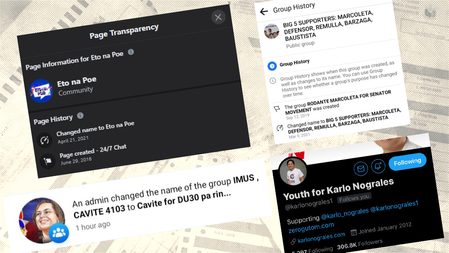
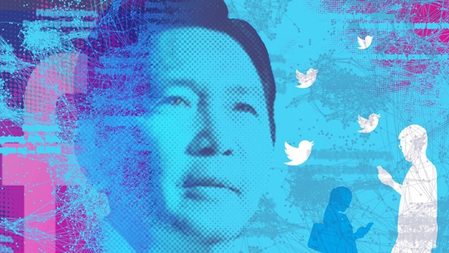





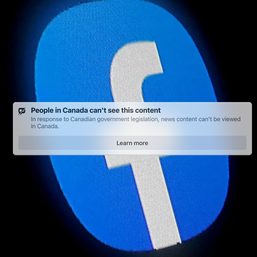
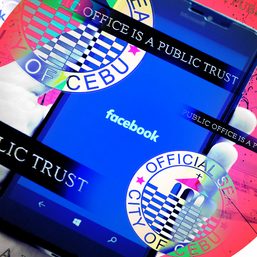
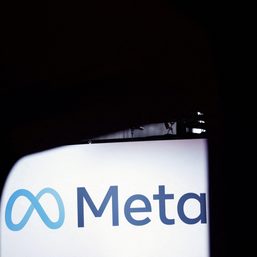
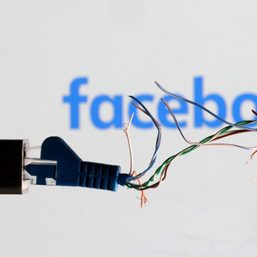

![[OPINYON] Takoyaki tattoo at ang business model ng pang-iinis](https://www.rappler.com/tachyon/2024/04/20240410-Takoyaki-tattoo.jpg?resize=257%2C257&crop_strategy=attention)
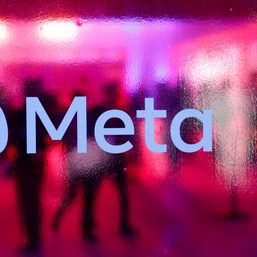
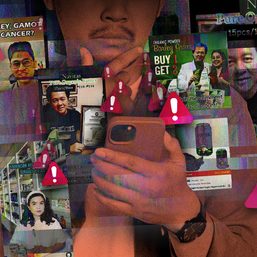
There are no comments yet. Add your comment to start the conversation.